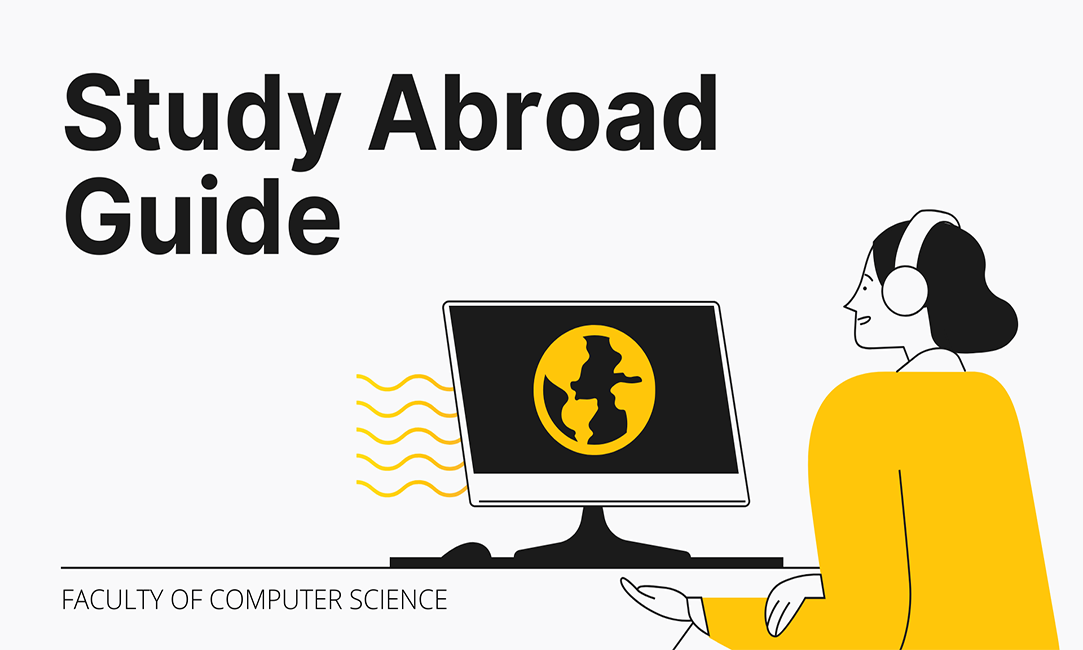Study Abroad Guide

How to find a perfect university
One is easily confused by a sheer number of IT universities and departments around the world. So, the first step is to choose your particular area of interest and preferred countries to cut the number of options. If you’re thinking about research programmes like PhD or Research Master you need to choose university according to the research groups it hosts.
International rankings are a good place to start. Almost every ranking agency has a computer science ranking:
QS World University Rankings by Subject 2019: Computer Science & Information Systems
Times Higher Education World University Rankings 2019 by subject: Computer Science
ShanghaiRanking's Global Ranking of Academic Subjects 2019 - Computer Science & Engineering
U.S. News Best Global Universities for Computer Science
CSRankings: Computer Science Rankings
However, the universities’ positions in the ranking are not always objective. It is wise to use them primarily as a convenient university aggregator by country and subject. Some younger universities may not be able to enter the rankings because of the limitation of the methodology.
You also need not, as the old saying goes, put all your eggs in one basket. It is safer to choose several universities in different countries to increase your chances.
Application
Every university has its own rules and regulations, but the most frequently required documents are (all documents should be in English):
· The online application looks simple, but it takes several hours to fill the form correctly. Some universities ask open questions on your motivation and experience right in the application form.
· Diploma of previous education. Some universities provide the diploma with an English transcript. Otherwise, you need to translate and notarise the document.
· Transcript of records, if you currently study at the university.
· Motivation letter/statement of purpose. This is a truly vital document, especially for research programmes. The worst thing you can do is to write one boilerplate letter and just change the university name. In every letter, you need to show your choice is not random and you clearly understand university’s curriculum and what it will give to you. Motivation letter writing guide.
· Recommendation letter. Two letters are usually requested. Sometimes, the university asks for professors’ contacts and reaches them directly. The better the professor knew you the stronger the letter will be.
· Language certificate – usually TOEFL/IELTS/GRE. See which certificate the university of your choice accepts. You may be exempt from providing a certificate if you have studied in an English-speaking country before.
· CV. You need to stress your academic achievements there; the professional ones are also important.
If you do not have some documents when applying (for example, you are still studying at the university and cannot provide a diploma) the university may grant you a conditional offer, that is, you will be accepted if you provide the document in question.
Scholarships
Many countries have government scholarships for incoming international students. Some are listed below. Many universities also support international students, so don’t forget to check the university of your choice.
Austria
OeAD – Austrian Database for Scholarships and Research Grants
Belgium
Denmark
Danish government scholarships for highly qualified non-EU/EEA students
Germany
DAAD (German Academic Exchange Service)
France
French Government Scholarships
Ireland
International Education Scholarship
Singapore
Sweden
Switzerland
ETH Zurich Scholarship for International students
The Netherlands
UK
USA
Sooner or later, the present situation will end, so you can plan in advance. If you have questions or you need some help with the application, contact Sergey Karapetyan, the international cooperation manager at the Faculty of Computer Science. You can look for the study abroad opportunities at the Faculty’s website and in Telegram-channel @computerscienceabroad.

.png)